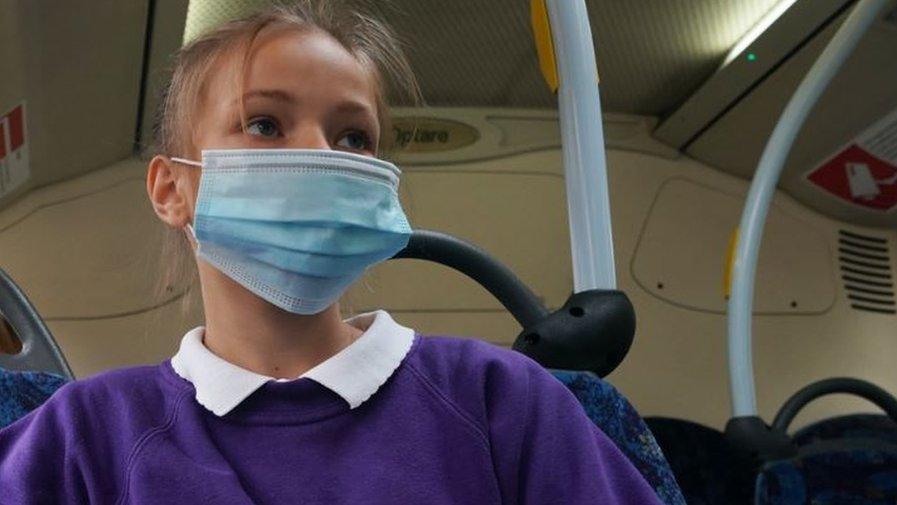Coronavirus: Public transport use dropped by 90% in pandemic
- Published
- comments
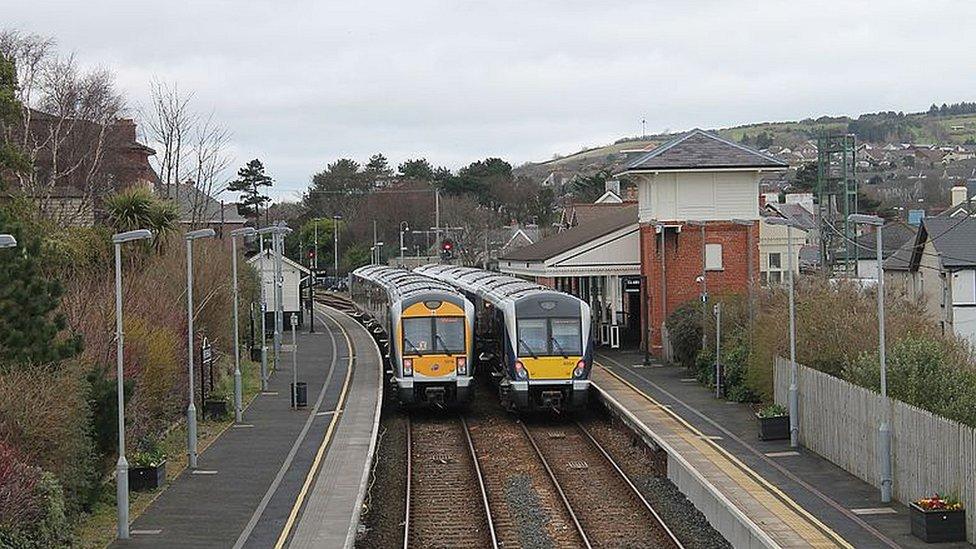
There's been an increase in public transport use, but numbers are still well down on last year
Public transport use in Northern Ireland dropped by more than 90% at the height of the coronavirus pandemic.
More people are now using buses and trains but the numbers are still down - 60% lower than before the pandemic.
Translink, which operates public transport in Northern Ireland, says specialist cleaning has been stepped up since the virus struck in February.
In a message to the public, chief executive Chris Conway said: "We're ready for you when you're ready for us.
"We have a whole range of measures in place including PPE (personal protective equipment), and sanitisation products which keep our surfaces clean on trains, buses and train stations for up to seven days.
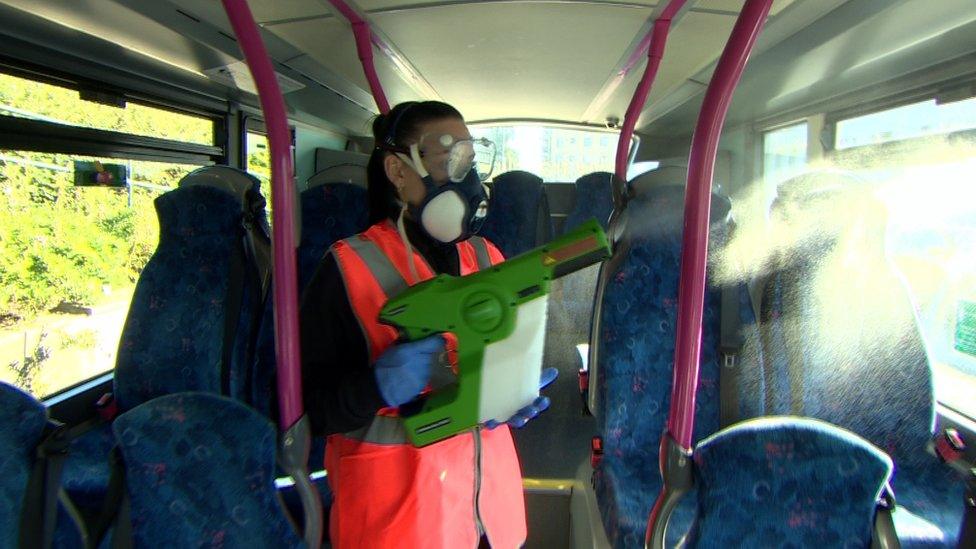
Translink wants to reassure passengers that public transport is safe
"We feel if everyone takes the right approach, and wears a face covering, sanitises their hands, listens to all the signage and guidance that we have, that public transport is still safe to use."
Services were reduced during the pandemic as passenger numbers started to fall.
"Numbers fell to about 10% of normal usage," said Mr Conway.
"We've seen steady growth through the summer and we're now at about 40% of what our normal usage would be.
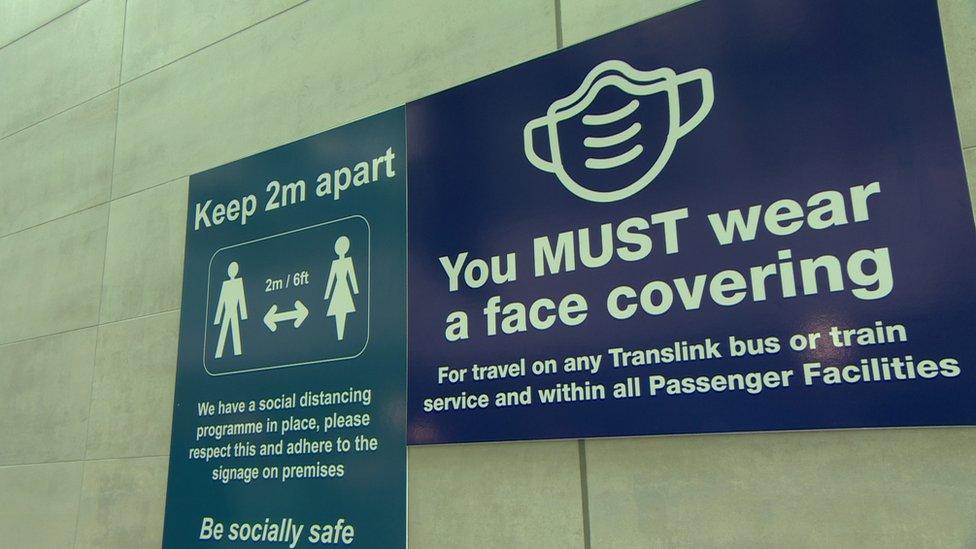
Translink says there is still significant capacity on its networks
"We have about 80% of our network in place so we still have significant capacity there and opportunities for people to use public transport."
Given the current public health concerns around personal contact, there have been complaints that not all services offer contactless ticket payments.
Translink says it has accelerated its contactless ticketing project and many services provide tickets through vending machines and mobile phone technology.
- Published19 May 2020
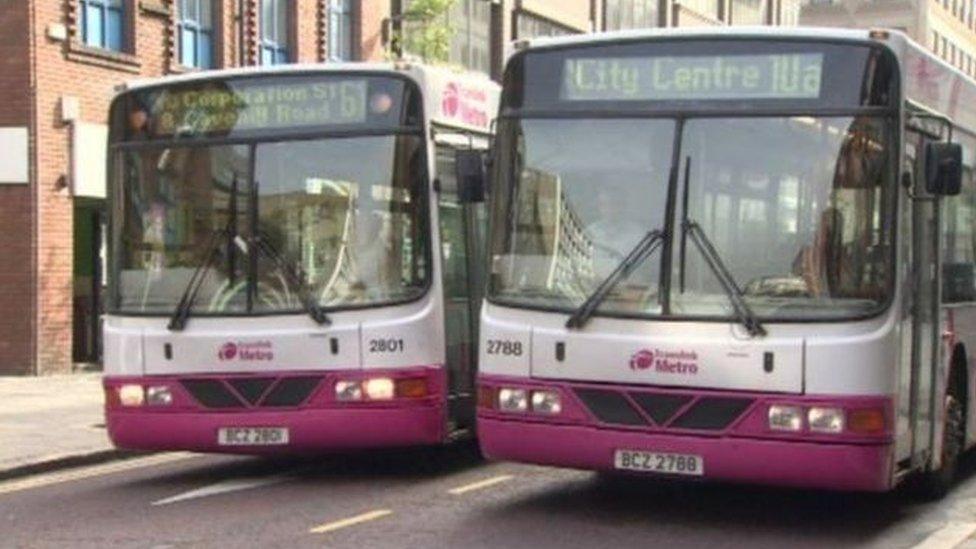
- Published4 March 2020
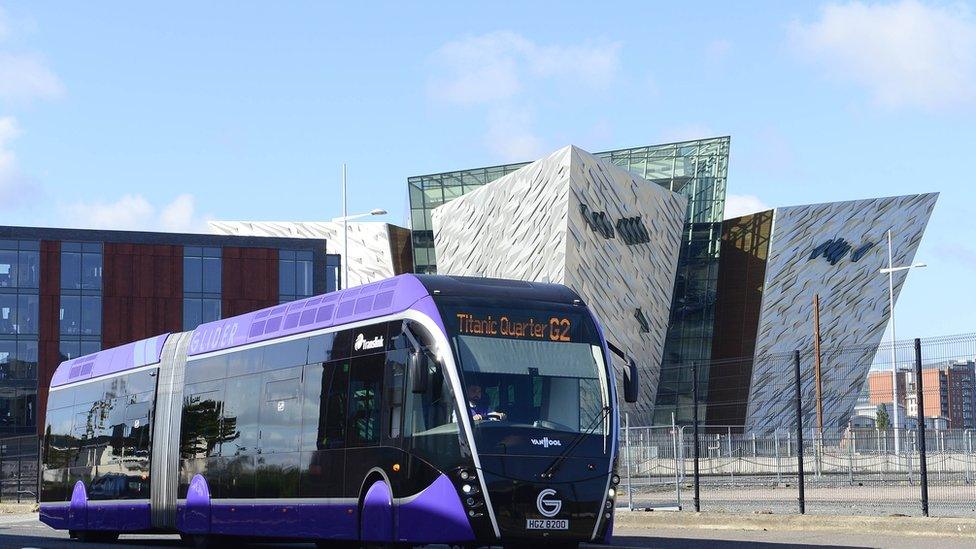
- Published28 August 2020
